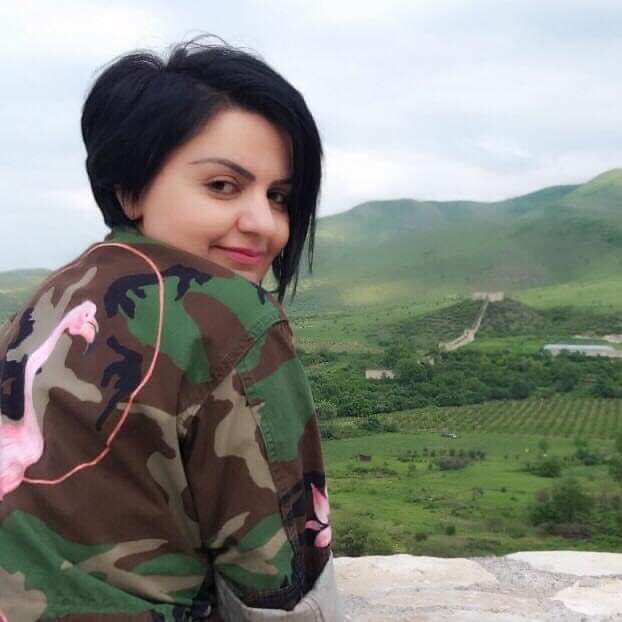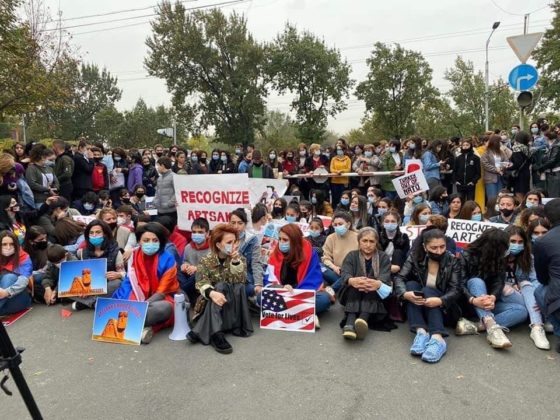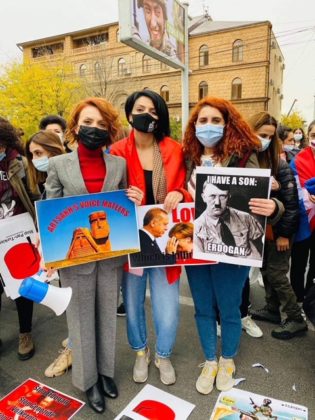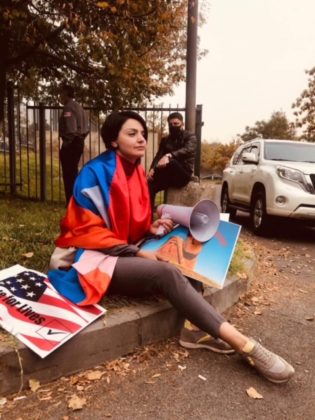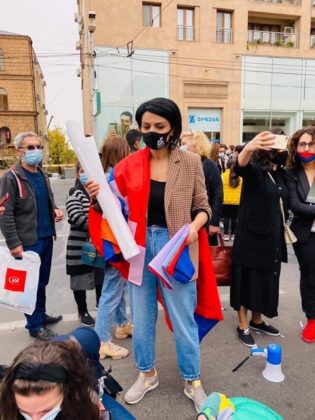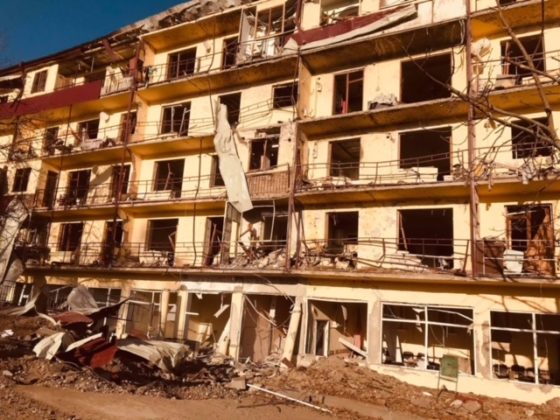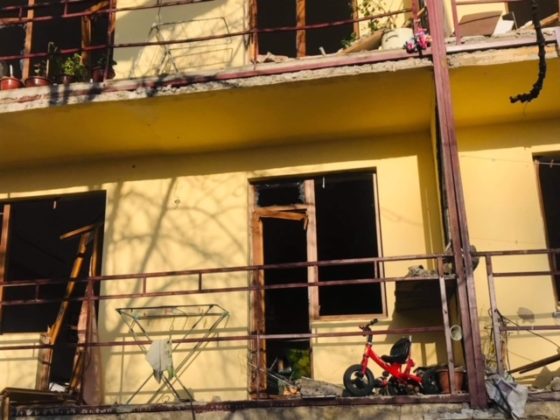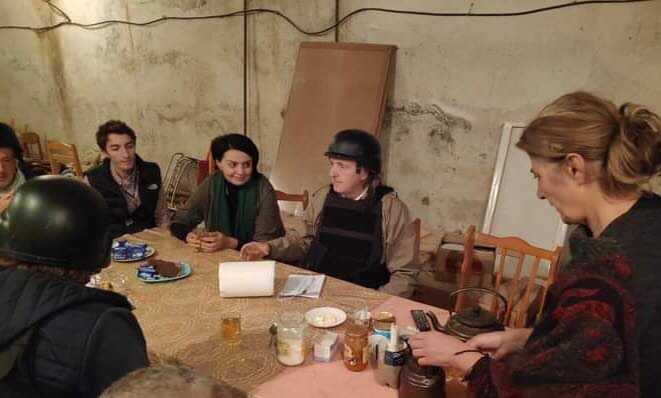[Editor’s Note: This article was written several days before the fall of Shushi and the November 10, 2020 ceasefire.]
YEREVAN – Siranush Sargsian is from Sos village in Martuni, Artsakh. She has no news about the state of her home. She heard a lot about Azerbaijanis entering her friend’s homes, burning and destroying them. The village was shelled several times already. “The only thought, that they could enter my house, disgrace my father’s portrait, doesn’t abandon me,” Siranush is crying. She is crying during almost the entire interview. But through the tears, the signs of resilience never leave her eyes.
She remembers how her mother was rushing her and her siblings to safety during the first war in Artsakh, when her father was fighting in the frontline, and how her mother was looking at her home thinking that it would be the last time she would see it. It wasn’t.
Siranush and her family were back when the war was over. Her hopes are the same this time again.
Siranush is the Chief Specialist (adviser) of the Standing Committee on Science, Education, Culture, Youth and Sports of the National Assembly of Republic of Artsakh. With her mother, two sisters and their children she moved to Armenia when it wasn’t safe anymore to stay in Artsakh. Her two brothers-in-law are on the frontline defending their motherland. With many women from Artsakh. Siranush created the “Artsakh’s Voice Matters” movement. It organizes demonstrations, writes letters and meets with different international organizations and consuls and ambassadors to raise the voice of the people, the mothers and wives of Artsakh, to recognize their right to live in their motherland and to condemn the atrocities committed by Azerbaijani soldiers and Syrian mercenaries.
“We are not asking them to fight instead of us: we can take care of our enemy. We are asking them to understand that these terrorists that are now fighting with our fathers, brothers and sons, tomorrow will go to stand at their doorsteps. We need to work together to end this. We want international society to understand that our movement is not political. We are women of Artsakh. We are mothers and sisters and daughters and telling what we witnessed,” explains Siranush.



